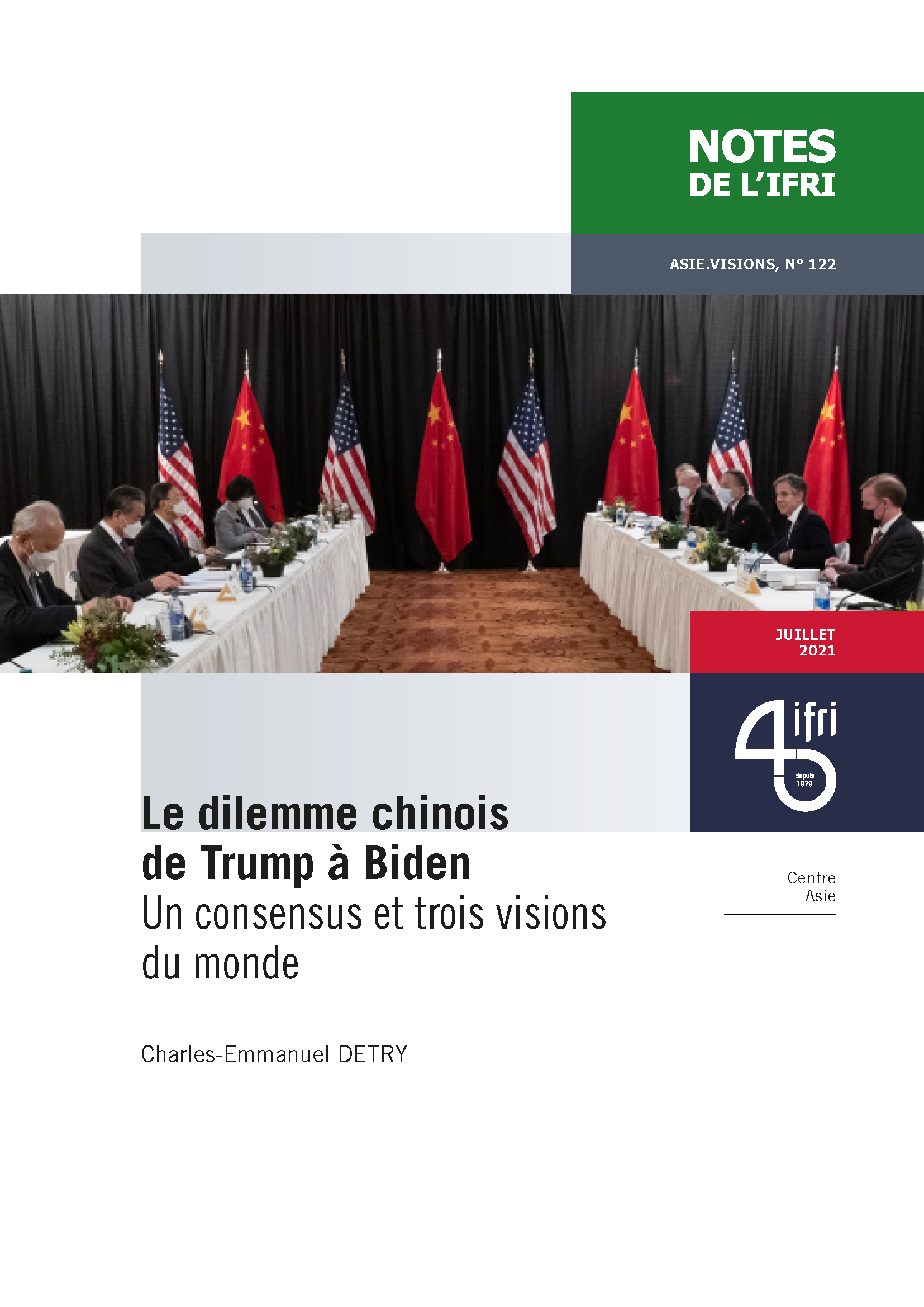The China dilemma from Trump to Biden: one consensus and three worldviews

The United States underwent a fundamental transformation in its stance on China during the Trump presidency.
This shift is perceived as the expression in Washington of a new consensus on the failure of 40 years of engagement. The policy stands accused of having enabled the rise of an alarmingly powerful China, without rendering it any less dictatorial than in the past. As a result, Sino-American antagonism is deemed inevitable and stands as a given for the new Biden administration.
Yet, this seemingly unanimous diagnosis (China is the enemy) does not lead to an agreement on the policy to be implemented (how should this enemy be dealt with?). An assessment of the past four years reveals hesitations that can not be solely attributed to the former president’s idiosyncrasies. As argued below, this indecisiveness is the product of three conflicting tendencies that differ in how they project the kind of international order in which the United States and China may coexist.
According to the first initiatives of Joe Biden’s new team, the introduction of a narrative of struggle between democracies and autocracies and the persistent need for cooperation place the Democrats in front of the same dilemma as their predecessors’.
The full text of this paper is only available in French: https://www.ifri.org/fr/publications/notes-de-lifri/asie-visions/dilemme-chinois-de-trump-biden-un-consensus-trois-visions
Related centers and programs
Discover our other research centers and programsFind out more
Discover all our analyses
RAMSES 2024. A World to Be Remade
For its 42nd edition, RAMSES 2024 identifies three major challenges for 2024.
France and the Philippines should anchor their maritime partnership
With shared interests in promoting international law and sustainable development, France and the Philippines should strengthen their maritime cooperation in the Indo-Pacific. Through bilateral agreements, expanded joint exercises and the exchange of best practices, both nations can enhance maritime domain awareness, counter security threats and develop blue economy initiatives. This deeper collaboration would reinforce stability and environmental stewardship across the region.

The China-led AIIB, a geopolitical tool?
The establishment of the Asian Infrastructure Investment Bank (AIIB) in 2016, on a Chinese initiative, constituted an attempt to bridge the gap in infrastructure financing in Asia. However, it was also perceived in the West as a potential vehicle for China’s geostrategic agendas, fueling the suspicion that the institution might compete rather than align with existing multilateral development banks (MDBs) and impose its own standards.
Jammu and Kashmir in the Aftermath of August 2019
The abrogation of Article 370, which granted special status to the state of Jammu and Kashmir (J&K), has been on the agenda of the Bharatiya Janata Party (BJP) for many decades.






